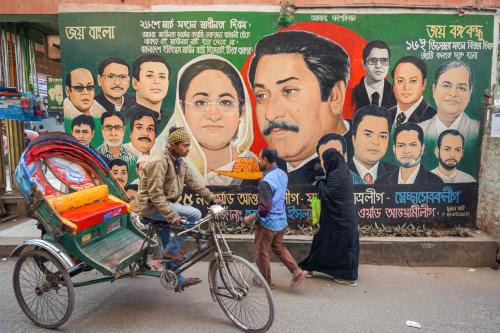

10:00 am EST - 11:30 am EST
Past Event
10:00 am - 11:30 am EST
1775 Massachusetts Avenue N.W.
Washington, DC
20036
In what is being called the “Asian century,” there has been increasing focus on the fate of the rivalry between China and India. The U.S. relationships with the two Asian giants are now seen to be intertwined, after having followed separate paths during the Cold War.
In her new book, “Fateful Triangle: How China Shaped U.S.-India Relations During the Cold War,” Senior Fellow in Foreign Policy and Director of the India Project Tanvi Madan argues that China’s influence on the U.S.-India relationship is neither a recent nor a momentary phenomenon. Drawing on archival documents from India and the United States, Madan traces how American and Indian perceptions of, and policy toward, China significantly shaped U.S.-India relations during the Cold War. She highlights the lessons that this history offers for both the present and future of the triangle and offers insights on the possibilities and limits of U.S.-India cooperation in the face of a rising China.
On February 12, Foreign Policy at Brookings hosted a discussion on “Fateful Triangle,” where Madan presented the book’s key findings. Kurt Campbell then joined her on stage for a conversation, which was moderated by Thomas Wright.
Moderator

Panelist


Tanvi Madan
February 26, 2026

Constantino Xavier
February 7, 2026

Constantino Xavier
January 26, 2026